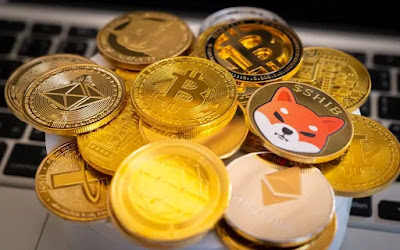History of Bitcoin, the First Cryptocurrency
The idea of cryptographic money has been around for around 40 years. Since that thought originally turned into a reality in 2009 (through the production of Bitcoin), its exchanging history has been unpredictable, but on the other hand it’s been a thrilling ride for some financial backers.
Driven by kept rising revenue from the up and coming age of financial backers, it stays perhaps of the most controversial worldwide monetary point, with 2024 adding more marquee news titles. A few vital minutes in digital currency’s course of events include:
In 1983, David Chaum, an American cryptographer distributed an idea for mysterious electronic cash he called eCash. His vision became completely awake in 1989 through the organization he established called Digicash. He sent off his idea in a solitary bank, however it neglected to draw in an adequate number of clients. His test bank was bought by a huge charge card backer and he broke down the organization in 1998.
In 2009, Bitcoin (BTC) was made, turning into the principal genuinely decentralized cryptographic money.
In 2013, Forbes named Bitcoin the year’s best venture.
In 2014, Bloomberg countered with its announcement of Bitcoin being the year’s most exceedingly terrible speculation.
In October 2021, the Protections and Trade Commission endorsed ProShares Bitcoin Methodology (ticker: BITO), the principal U.S. Bitcoin fates trade exchanged reserve.
In November 2022, FTX – the main cryptographic money trade by exchanging volume – opted for non-payment.
In January 2024, the Protections and Trade Commission supported the initial 11 spot Bitcoin ETFs, improving on financial backers’ admittance to crypto markets.
How Bitcoin Began
Bitcoin was the main digital money made and is currently the most important and notable. It was sent off in January 2009 by a software engineer – or gathering of developers – utilizing the pen name Nakamoto. Nakamoto’s genuine personality has never been checked.
A 2008 white paper by Bitcoin’s puzzling maker uncovered the blockchain framework that would be the foundation of the digital money market. A blockchain is an advanced record of exchanges that is duplicated and dispersed across an organization of PC frameworks to get data.
Bitcoin Center Ideas
Block. A block is a gathering of Bitcoin exchanges over a specific period. The exchanges are checked by “excavators” who are monetarily compensated for confirming the exchanges with recently made BTC.
Bitcoin units. Each Bitcoin is distinguishable to eight decimal spots. A millibitcoin (mBTC) is 1/1,000th of a Bitcoin. The littlest unit is a satoshi (sat), which is 1/100,000,000th of a Bitcoin.
Exchange. A PC mandate styled as “payer X sends Y Bitcoin to recipient Z.”
Blockchain. Every exchange frames a whole connection on the chain. This straightforward, public chain permits Bitcoin to exist and be usable. All blocks of exchanges are connected to past blocks of exchanges, shaping the derivation for “blockchain.”
Mining. Free people or gatherings complete complicated and expensive PC computations to make a block.
Block hash. Mining exercises consolidate a record-keeping administration that keeps the blockchain reliable, complete and unalterable. The hashes approve accessible Bitcoin and act for the purpose of consistently remunerating the diggers.
Blockchain Address
A succession of 25 to 34 alphanumeric characters. This is the data that is given to different gatherings so they know where to send the coins. They are considered mysterious on the grounds that, while the blockchain itself is public, the location safeguards actually recognizable data. Cryptographic money trades might be legally necessary to gather by and by recognizable data, however every exchange can be related with an alternate Bitcoin address to keep up with security.
Wallet. Any individual or substance wishing to trade Bitcoin (and not store them on a trade in another person’s care) should make a computerized assortment of the certifications, known as a wallet, important to execute coins.
Full clients. This is a wallet that incorporates a full duplicate of the whole blockchain. This is the most secure type of capacity other than disconnected, or “cold capacity,” however it requires significant advanced space.
Lightweight clients. This is a wallet that incorporates a more restricted form of the blockchain to empower it to be compact on gadgets, for example, a cell phone. Since the whole blockchain isn’t accessible, a party utilizing a lightweight wallet should believe middle people who have full wallets.
Keys. These are the confidential qualifications put away in the wallet. Like a protected store box, to get to the worth held inside a wallet, an individual high priority a confidential key. Keys are alphanumeric.
Public keys. This is the innovation important to scramble and decode exchanges. It is “one way,” implying that it effectively opens exchanges, yet switching the transaction can’t be utilized. This key empowers the blockchain to be continuous.
Confidential keys. This is the password that executing parties start so the exchange is exceptional to themselves. To spend Bitcoin, one should know their own confidential key and carefully sign the exchange. The party’s mark is confirmed by the public key without uncovering the confidential key.
In the event that the party loses its vital, the Bitcoin in the wallet turns out to be basically useless, as it is unrecognizable and out of reach to anybody. As per Chainalysis, a blockchain examination organization, generally 20% of Bitcoins host been lost by gatherings who lost the confidential key. Furthermore, in the event that the confidential key is uncovered in a security break, the Bitcoin held inside it tends to be taken. In 2022, cryptographic money financial backers lost a record $3.8 billion to programmers.
Cold capacity. Confidential keys are put away disconnected to help abstain from losing them or presenting them to a security break.
Bitcoin Reception and Contention
Bitcoin allies note that an ever increasing number of establishments, nations and stages are tolerating the advanced cash. In the U.S., be that as it may, its primary worth at present is as a venture.
A few defenders keep on holding out trust for Bitcoin to turn into a worldwide save money, and the U.S. is finding a way beginning ways to investigate the practicality of digital currency on a government level. In Walk 2022, President Joe Biden marked a chief request to look at the essential guideline and oversight of computerized resources, as well as thinking about a U.S. National Bank Computerized Money (CBDC), a computerized form of the dollar. The entire of-government request additionally coordinates the U.S. to play an influential position in imparting U.S. values around monetary steadiness, information security and common liberties in worldwide advanced drives.
While certain nations, most eminently China, have prohibited cryptographic money mining and exchanging, numerous nations are embracing it completely:
Crypto has supported the two sides of the Russia/Ukraine struggle. Crypto is valued because of its decentralized nature, where fast exchanges are helpful to get cash into struggle regions for both philanthropic necessities and military help. Ukraine posted two crypto wallets toward the start of the Russian attack to raise reserves, drawing in more than $56 million inside the primary month. Russia has raised around 1/tenth of that sum.
El Salvador embraced Bitcoin as its lawful delicate in 2021. As the main country to do as such, it itends to determine profound monetary hardships and forestall the dangers that accompany a feeble public cash. Introductory excitement by Salvadorians was dull. The nation lost an expected $40 million of its speculation. Authorities multiplied down, commanding cryptographic money education courses in state funded schools starting in 2024. El Salvador’s devotion to the idea is paying off. President Nayib Bukele uncovered that the nation has moved about $400 million into a chilly wallet and set it into an in-country actual vault toward the beginning of Walk 2024. This mirrored a multiplying of the nation’s known record and incorporates resources procured through the public authority’s new Opportunity visa.
Iran has viewed Bitcoin as a successful strategy to sidestep U.S. monetary authorizations on the country. In light of its plentiful normal assets, Iran had the option to effectively turn to delivering hydroelectric power for Bitcoin mining when the U.S. braced down on its oil and gas tasks.
The public authority expects that diggers pay a higher tax for their power utilization and sell all mined Bitcoin to the country’s national bank. Because of these prerequisites, unlawful crypto-mining exercises have multiplied, which made huge electrical blackouts in the country during top use periods. Iran needed to end all crypto digging for a very long time while clasping down on permissible movement.
Crypto’s part in the conflict among Israel and Hamas has been on the radar of the Monetary Violations Implementation Organization (FinCEN), the U.S. Depository arm that battles psychological oppression supporting. A joined $165 million in crypto exchanges, comprising of 200 wallets connected to Hamas, are accepted to be attached to the Oct. 7, 2023 shock assault on Israel.
Bitcoin has additionally been refered to for the environmental change ramifications of its gigantic electric power use. The College of Cambridge distributes the Cambridge Bitcoin Power Utilization File (CBECI), which gives gauges on the ozone depleting substance discharges connected with Bitcoin. It found that crypto digging is liable for 0.1% of worldwide ozone harming substance emanations.
The quick ascent and resulting breakdown of FTX Exchanging Ltd. addressed quite possibly of Bitcoin’s most sensational section. FTX was driven by Sam Bankman-Seared, conversationally known as SBF, and worked related to Alameda Exploration, another SBF-established substance show to Caroline Ellison, his better half at that point. FTX developed forcefully through high-profile acquisitions and sensational showcasing efforts, including big name and virtual entertainment powerhouse supports. The showcasing message was centered around better returns than normal ledgers.
In November 2022, CoinDesk distributed an article specifying FTX’s unsafe monetary dangers, absence of bookkeeping oversight and possible crook use.









